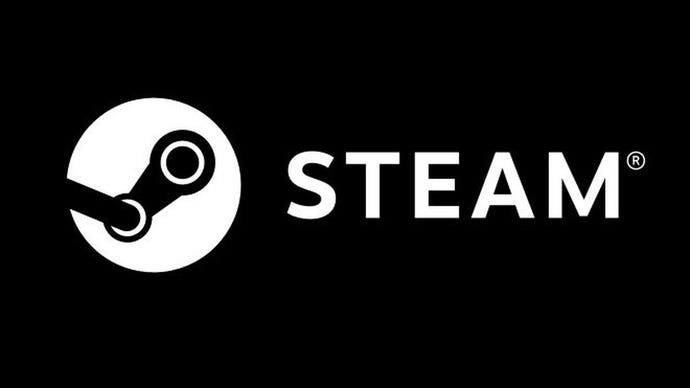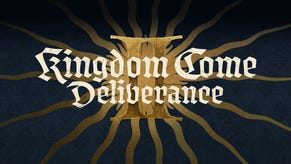The Steam Rape Day Controversy: How It Became a Scandal, and Why It's Further Testing Valve's Policies
Recapping the controversy that has embroiled Steam over the past two days.
This article first appeared on USgamer, a partner publication of VG247. Some content, such as this article, has been migrated to VG247 for posterity after USgamer's closure - but it has not been edited or further vetted by the VG247 team.
It's been quite a couple of days for Steam as a new game about sexually assaulted women has once again tested Valve's laissez-faire policies towards content moderation. Though Valve ultimately decided not to allow the game titled "Rape Day" to be sold on its platform, the conversation once again highlighted what games can and can't be on Steam. Here's how it all started, how it mushroomed into a major controversy, and what it means for Steam going forward.
How the Rape Day Controversy Started
A couple days ago it was discovered that a developer called Desk Lamp was getting ready to sell an "adult only" titled called Rape Day. Because of its rating, Rape Day was not easily accessible on Steam, and could only be reached by specifically entering the game's name in the Steam desktop app search bar. It was not accessible through Steam's browser page.
Desk Lamp describes Rape Day on its official website as a visual novel where players can "verbally harass, kill, and rape women as you choose to progress the story." The title featured screenshots and promotional content (which we will not share here) with images depicting violence towards the game's women characters.
Despite its content, Desk Lamp was confident that Rape Day did not violate any of Steam's policies. Following an incident where Valve removed a game about shooting in a school, Valve announced a new content policy which was to allow any game on Steam as long as it was "not illegal or 'straight up trolling."' The vagueness of the policy caused worry that it could lead to the very situation Valve found itself with Rape Day.
Desk Lamp seemed confident that despite these rules Rape Day could still make it through Valve's moderation, though they did remove a "baby killing scene" to be safe. But that further highlighted the kind of content Desk Lamp seemed comfortable submitting past Valve in the first place.
The Industry Takes Notice
Initial news of Rape Day's appearance on Steam was met with a storm of responses from the games industry. Rape Day's appearance on Steam was met with universal disapproval from developers, critics, and customers. Rape Day's Steam forum pages were flooded with comments from disapproving players who criticized the title's existence.
For developers and media, this was yet another episode in Steam's ongoing struggle with content moderation. Rather than outright criticism, the Rape Day episode kicked off a new conversation about how Valve's policies differ from other content platforms.
Web ethics lawyer Keith Lee posted a lengthy Twitter thread about how Valve's moderation rules differ even from sites like Pornhub, which clearly ban content that depicts rape. "If pornography companies are blocking something, there is no way Valve can't," Lee writes. "Some stuff just doesn't need to be made widely available. It's dumb, damaging, and unnecessary."
Though Valve ultimately stopped Rape Day from going on sale in Steam, that wasn't necessarily a guarantee just 24-hours prior. Valve's decisions on which games it does and doesn't permit have been questionable in the past.
As our colleagues at GamesIndustry.biz wrote, "Valve prioritizes the freedom to create and consume content of your choosing to the exclusion of all other values it might have. Permitting Rape Day on the storefront isn't a statement that Valve believes rape is a societal good and should be promoted as such; it's just that Valve cares about helping interactive rape fantasies reach as large an audience as possible more than it has an opinion of any kind about rape."
Valve Announces Rape Day Won't Be Sold on Steam
Valve officially announced today that would not allow Rape Day to be sold on Steam, and had to explain why under its previous "Who Gets To Be On The Steam Store" policies. The same policies which allowed anything that was illegal or trolling to become available on Steam.
"Much of our policy around what we distribute is, and must be, reactionary-we simply have to wait and see what comes to us via Steam Direct. We then have to make a judgement call about any risk it puts to Valve, our developer partners, or our customers. After significant fact-finding and discussion, we think 'Rape Day' poses unknown costs and risks and therefore won't be on Steam.
We respect developers' desire to express themselves, and the purpose of Steam is to help developers find an audience, but this developer has chosen content matter and a way of representing it that makes it very difficult for us to help them do that."
The statement has been met with relief and further consternation given its wording. Valve's statement doesn't necessarily disavow Rape Day's content, merely the fact that it "posed unknown costs and risks" to the platform.
Valve has had trouble in the past with its content moderation platform. Last year, Steam removed several anime-style games from its platform for depicting sexually-explicit content. However, developers were perplexed by the way Valve handled the removal of certain titles, with certain publishers revealing that they were in conversation with Valve prior to their games' release to make sure they could sell on Steam in the first place.
The entire Rape Day incident highlights Valve's ongoing problems with managing its platforms from chaotic agents. Aside from allowing games like Rape Day to even be considered for sale on Steam, Steam also has problems dealing with other situations like "review bombing" or its Upcoming Popular Games list, both of which can be gamed to push forward individual agendas.
With competition from companies like Epic, Discord, Kongregate, and individual publishers, Valve's primacy as PC's online game store is not as assured as it once was. And incidents like Rape Day will have an effect on how Steam is perceived as a responsible marketplace.

















